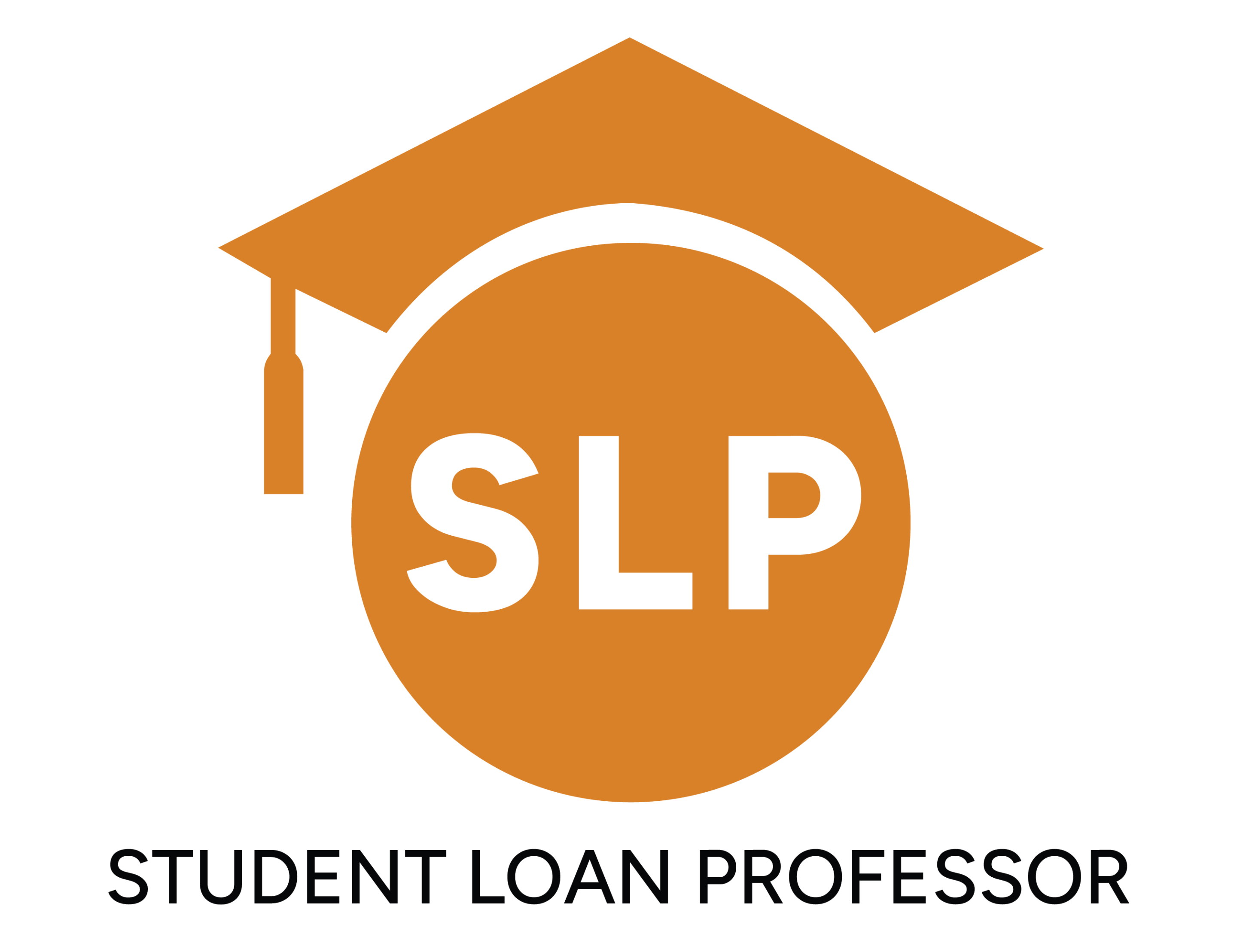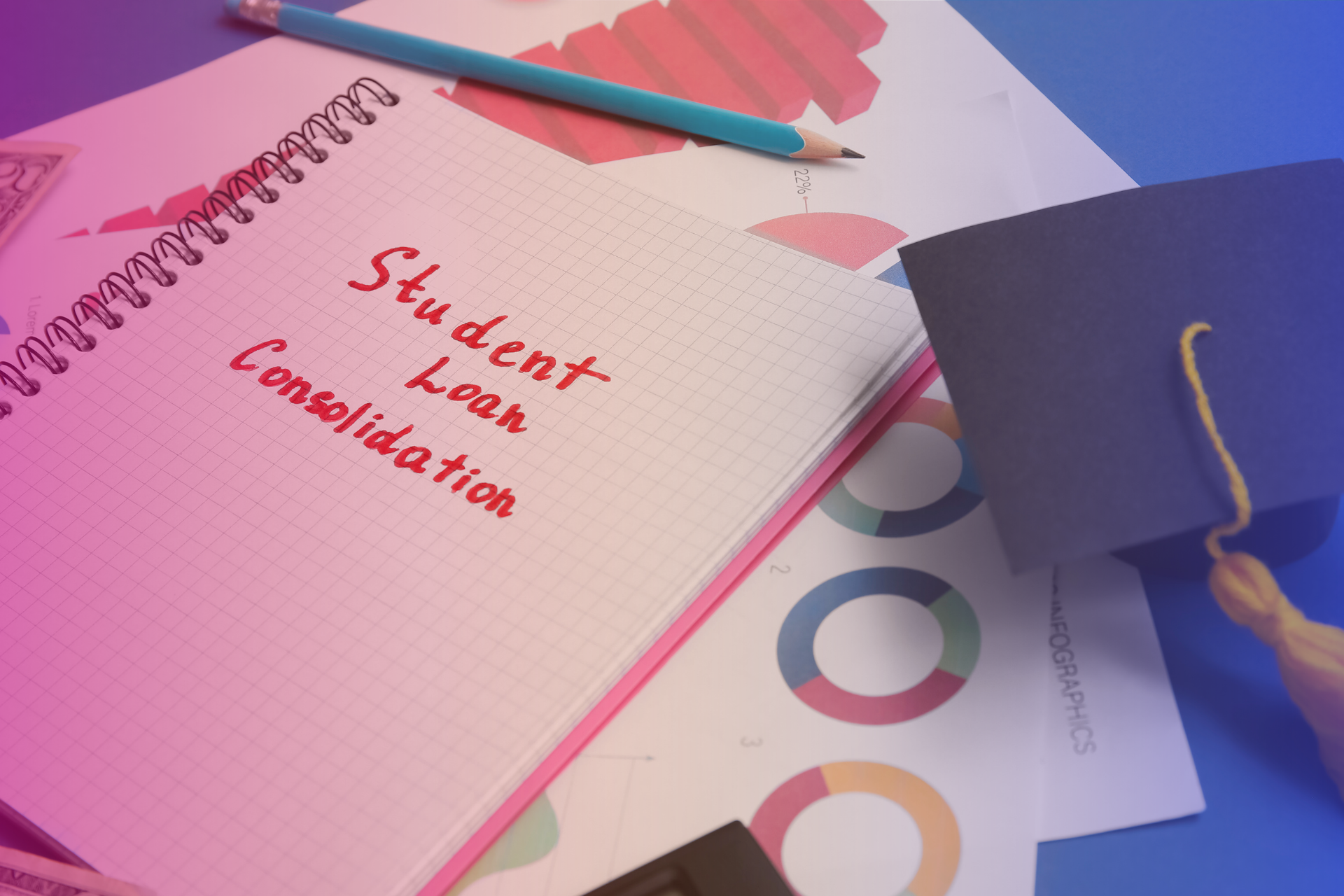Key Takeaways
- Consolidation combines federal loans, simplifies payments, and preserves federal benefits eligibility.
- Refinancing merges federal and private loans for potential lower rates but loses protections.
- Consolidation offers extended repayment, while refinancing may shorten or lengthen terms flexibly.
- Choose based on goals: consolidation for simplicity and federal benefits, refinancing for savings.
Student Loan Consolidation vs. Refinancing – The Difference At a Glance
| Loan Restructuring Type | Combines Both Federal and Private Loans | Results in Lower Interest Rate | Typical Repayment Period Length | Affects Credit Score |
| Consolidation | No | No | 30 years | No |
| Refinancing | Yes | Yes | 10 – 20 years | Yes |
What Is Student Loan Consolidation?
Federal student loan consolidation is a student loan restructuring process that involves combining multiple federal loans into one (i.e., a direct consolidation loan).
Rather than juggling multiple loan servicers, monthly payments, and interest rates, consolidating federal direct loans lets you combine your debt into a single monthly payment and interest rate. This makes managing your student debt easier and more streamlined.
The goal of consolidating student loans is to simplify your payments. When you consolidate your loans, you get a new interest rate. This fixed interest rate is calculated as a weighted average of all the interest rates of the consolidated loans rounded up to the nearest one-eighth percent. It can also be higher than your original rate.
It’s worth noting that it’s only possible to consolidate federal loans. Consolidation is not available for private student loans. If you have both federal and private loans, you’ll need to talk to your private lender about refinancing the private ones.
Additionally, not all federal loans can be consolidated indiscriminately. According to the Department of Education’s Federal Student Aid website:
“Direct PLUS Loans received by parents to help pay for a dependent student’s education cannot be consolidated together with federal student loans that the student received.”
Examples of federal student loans you can consolidate include:
- Federal Perkins loans
- Direct Subsidized and unsubsidized loans; and
- Direct PLUS loans
You can find a full list of the loans you can consolidate on the Student Aid website.
Eligibility Criteria for Federal Loan Consolidation
According to the Department of Education, you’ll need to provide the following when applying to consolidate your federal student loan payments:
- A verified FSA ID
- Your details
- Your financial information
- Information about the loans you want to consolidate
Additionally, the loan must either be in repayment or its grace period, which implies that you can’t consolidate federal loans while attending college.
If you’ve already consolidated your loans, reconsolidation is only possible by adding a new eligible loan.
Let’s say you had five loans and consolidated four of them into a single loan. If you wanted to reconsolidate your new loan, you’d have to add the fifth unconsolidated loan to your reconsolidation application.
The exception to the above rule is reconsolidation applications for an existing Federal Family Education Loan (FFEL) consolidation.
Benefits of Consolidating Your Student Loan
Consolidating your student loans can provide several benefits, including:
- Simplified Payments – Consolidation helps you simplify your loan repayments by combining them under a single loan servicer. This convenience will mean you can better manage your cash flow, as you’ll only make one payment monthly.
- Access to Federal Programs – Your consolidated loan does not preclude you from obtaining federal loan benefits. You can qualify for loan forgiveness, income-driven repayment plans, and similar government programs.
- Interest Rate Savings – If you have any loans with variable interest rates (for example, Federal Stafford or Plus loans obtained before 2006), you can consolidate them into one fixed-rate loan and save money.
- Preserved Credit History – Even though you must submit financial records during the application process, consolidation doesn’t involve hard credit checks, unlike refinancing. Thus, you don’t have to worry about the process impacting your credit score.
Additionally, student loan consolidation lets you lower your monthly payments by providing more time to repay your loan.
Drawbacks to Student Loan Debt Consolidation
There are a few drawbacks to student loan consolidation that you should consider before taking the plunge. They include:
- Longer Repayment – Since consolidation entails combining your existing loans into a single new loan, the terms of that loan change as well. One area where that can be detrimental is the repayment period, which can extend up to 30 years. While the extra time can seem beneficial, it also means more principal and interest payments.
- Higher Overall Interest – Your outstanding interest payments get added to your original principal balance during loan consolidation. This process increases the total amount you owe and adds accrued interest to the new balance. The typically longer repayment period these loans have may leave you with a hefty federal student loan bill.
- Non-Transferable Borrower Benefits – Some federal loan servicers include perks like interest rate discounts and rebates in their loan packages. If you consolidate these loans, you’ll lose the above benefits.
Consolidation can be expensive in the long term. We advise that you weigh the above cons and seek financial advice before proceeding.
What Is Student Loan Refinancing?
Similar to consolidation, refinancing involves merging multiple loans into a single loan. The key difference is that the loans you can combine aren’t limited to federal ones. You can also refinance private loans.
Refinancing works as follows:
- Your private lender pays off the loans being refinanced and provides you with a new loan agreement.
- This new private loan will include a different interest rate and terms.
- If you have federal loans included, they will be merged into the new private loan your lender offers.
The resulting loan streamlines your repayment process by letting you make payments once a month to one loan servicer at the same (possibly lower) interest rate.
While consolidation is a government process, refinancing is conducted only through private lenders.
Eligibility Criteria for Student Loan Refinance
The eligibility criteria private lenders set for refinancing student loans can differ greatly depending on where you go.
For an example of criteria you’ll need to meet, see fintech firm SoFi’s eligibility criteria below (which we’ve pruned for ease of perusal):
- “You are at least the age of majority in your state and able to enter into a binding contract.
- Be a US citizen, permanent resident, or non-permanent resident alien…
- Borrowers must be employed, have sufficient income from other sources, or have an offer of employment to start within the next 90 days.
- You have previously enrolled or graduated from degree-granting Title IV-eligible schools.
- You are looking to refinance educational debt…”
The company also states that “Loan eligibility depends on a number of additional factors, including your financial history, credit score, and monthly income vs. expenses.”
To meet the second criterion, U.S. citizens must provide one or more of the following documents to prove their citizenship:
- “an image or scan of their valid U.S. driver’s license with photograph
- certified birth certificate
- valid U.S. passport
- valid U.S. permanent resident card
- valid government-issued ID card
- valid global entry card
- report of birth abroad form
- certificate of citizenship; or
- certificate of U.S naturalization.”
If you have permanent residency or a non-permanent resident alien, you can read about the documents you’ll need to provide on SoFi’s site.
The company also sets a minimum amount you can borrow ($5,000), which “may be higher in specific states due to legal requirements.”
While SoFi is but one example, you can expect other private lenders to have similar criteria.
Benefits of Refinancing Student Loans
Refinancing your student loans can be an excellent option for the following reasons:
- It Reduces Your Monthly Payments: Like consolidation, refinancing combines student loan debt into one manageable payment. The difference is that you aren’t restricted to only federal student loans. Thus, it’s worth exploring if you have federal and private loans in your student debt portfolio.
- Flexible Repayment Terms: When you refinance your loans, the new private student loan contract you enter can have a shorter or longer repayment period, depending on your eligibility. A shorter repayment period can mean paying off your debt sooner. The reverse is true if you need more time to pay off your debt.
- A Lower Interest Rate: Getting this benefit will depend on your credit score. If it’s healthy, you can negotiate for a lower interest rate that saves you money long-term.
The bottom line is that a refinanced loan can help you manage loan repayments efficiently and reduce the loan’s overall cost.
Drawbacks to Refinancing Student Loan Debt
Refinancing your student loan debt has several drawbacks, including:
- Forgone Federal Programs: The main drawback of student loan refinancing is that you no longer qualify for loan forgiveness and similar government programs. By converting your federal loans into private ones, you lose any future eligibility for debt forgiveness.
- Detrimental to Credit Score: Unlike consolidation, refinancing involves credit checks. Private student loan servicers will run credit checks to assess your creditworthiness. These hard credit checks can impact your credit score, albeit temporarily, which could be a problem if you have other loans you’d like to take.
- Loss of Tax Benefits: The federal government has a student loan interest deduction tax incentive. Federal borrowers use it to deduct some of the interest they pay on their loans annually and reduce their overall income tax. Refinancing your federal loans (i.e., converting them into private ones) will preclude you from this benefit.
- Varied Eligibility Requirements: Since no two private loan servicers are the same, you must contend with different eligibility requirements. In some cases, you may not be eligible for refinancing. Meanwhile, loan consolidation has the same eligibility requirements, eliminating the hassle of searching for a lender whose criteria you meet.
If any of these drawbacks concern you, consider consulting a professional before proceeding.
Consolidating Federal Student Loans vs. Private Student Loans
Should You Consolidate or Refinance Student Loans? The answer will depend on your goals and financial circumstances.
Choose consolidation if:
- Your entire student debt comprises federal student loans, and you’d like to manage them better.
- You’d like to convert your existing loans from variable to fixed interest rates.
- You’ve taken federal loans and plan to enroll in a benefits program or apply for student loan forgiveness.
- You’d like to extend the repayment period while lowering your monthly payment.
- Your credit score precludes you from refinancing your loans.
Consider refinancing your loans if:
- Your total student loan debt is comprised of federal and private loans.
- You have a decent credit score, which makes you eligible for a lower interest rate.
- You’re okay with giving up the federal benefits you’re entitled to when you enroll in a federal program.
- You want a lower monthly payment, cost savings, and the flexibility to reduce or extend your repayment period.
It’s worth noting that you don’t have to choose between consolidation and refinancing.
If you have both federal and private debt, you can consolidate your federal loans and refinance your private ones. This strategy gives you the best of both worlds: you consolidate to maintain federal loan benefits while getting a new private loan with more favorable repayment terms via refinancing.
Get Expert Advice On the Best Student Loan Debt Management Option
Student loan consolidation and refinancing have pros and cons that can affect your financial future.
When deciding between the two, getting expert advice can help you make the right choice that addresses your unique financial situation. Book a consultation today to get expert advice regarding the best restructuring option for your needs.
Brandon Barfield is the President and Co-Founder of Student Loan Professor, and is nationally known as student loan expert for graduate health professions. Since 2011, Brandon has given hundreds of loan repayment presentations for schools, hospitals, and medical conferences across the country. With his diverse background in financial aid, financial planning and student loan advisory, Brandon has a broad understanding of the intricacies surrounding student loans, loan repayment strategies, and how they should be considered when graduates make other financial decisions.





